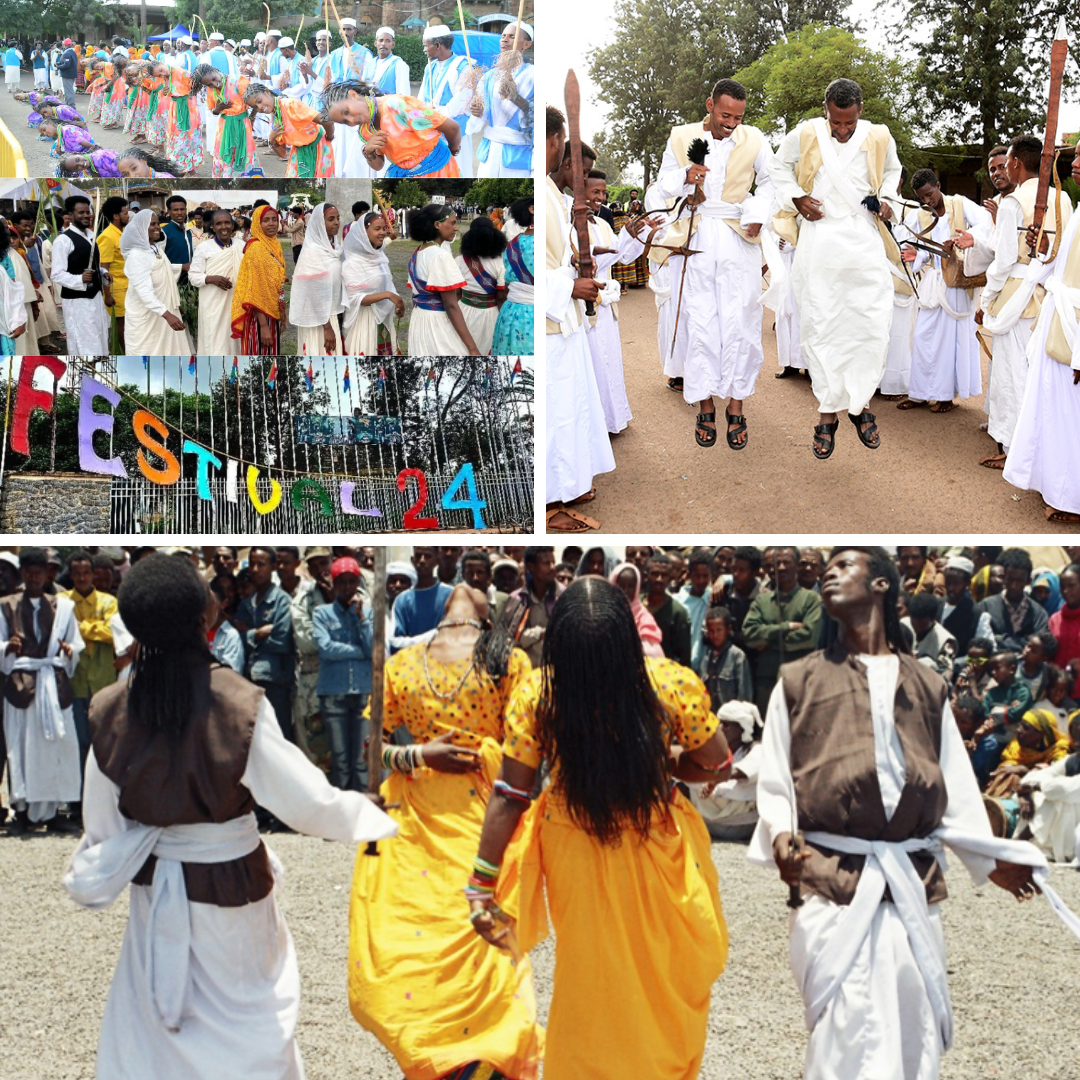
FAQs
Special Occasions in Eritrea
-
You can travel to Eritrea anytime throughout the year however, the best time to visit Eritrea is during the dry season from October to April. This period offers pleasant weather, making it ideal for exploring the country’s diverse attractions.
-
Key attractions include:
Asmara: The capital, known for its unique Italian colonial architecture and vibrant café culture.
Keren: A charming town surrounded by mountains, famous for its markets and historical significance.
Massawa: A beautiful port city with stunning Red Sea views and rich history.
Dahlak Archipelago: A group of islands known for their pristine beaches, snorkelling, and diving opportunities.
-
Yes, we will assist you with arranging a visa upon arrival. Ensure you have all necessary documents ready for a smooth entry.
-
The local currency is the Nakfa (ERN). You can exchange money at banks, exchange offices, and some hotels. As there are no ATMs available bringing cash in major currencies such as USD, EUR, or GBP is advisable. Please ensure that any foreign currency is in clean, crisp notes printed after 2016.
-
While photography is generally allowed, there are restrictions. Avoid taking pictures of military buildings, personnel, vehicles, and sensitive installations to respect local laws.
-
There are 9 different languages spoken in Eritrea which are Tigrinya, Tigre, Saho, Kunama, Rashaida, Bilen, Afar, Beni, Amir, and Nera. The official languages are Tigrinya and Arabic. Italian and English are widely spoken in urban areas and tourist destinations, making it easier for travellers to communicate.
-
Yes, we offer a variety of guided tours that explore Eritrea’s rich history, culture, and stunning landscapes. Check our tours section for more details.
-
Eritrea has a rich cultural heritage, and it’s important to be respectful of local customs. Dress modestly, especially in rural areas and religious sites.
-
Internet connectivity in Eritrea may be weak and limited, particularly outside major urban areas. It’s a good idea to prepare for potential offline time and fully immerse yourself in your trip. While there are some restrictions, you can consider downloading useful apps like SkyVPN for enhanced access and SHAREit for easy file sharing. Enjoy the opportunity to disconnect and explore the beauty of Eritrea!
-
When travelling to Eritrea, consider packing the following items for a smoother experience:
Portable charger banks: To keep your devices powered, especially since the electricity supply can be inconsistent.
Power adapters: Eritrea uses type C and type L plugs, so ensure you have the appropriate adapters.
Comfortable footwear: Ideal for exploring cities and engaging in outdoor activities.
Basic medications and supplies: Bring any personal medications, as well as a small first-aid kit for minor ailments.
Sunscreen: Protect your skin from the strong sun, especially if you plan to spend time outdoors.
Hand sanitiser: To maintain hygiene, particularly in areas where soap and water may not be readily available.
Toiletries: While some items may be available locally, it's best to bring your preferred toiletries to ensure you have what you need.
-
Tipping in Eritrea is not mandatory, but it is a customary way to show appreciation for good service. While not required, a tip is warmly welcomed by local guides, drivers, and restaurant or cafe staff who work hard to make your experience enjoyable and memorable.
-
Travelling to Eritrea is safe, and the country offers a unique experience. Asmara, the capital, is known for its charming mix of Italian-influenced cafes, art deco architecture, and a relaxed atmosphere, making it a fascinating destination compared to other parts of Africa.






